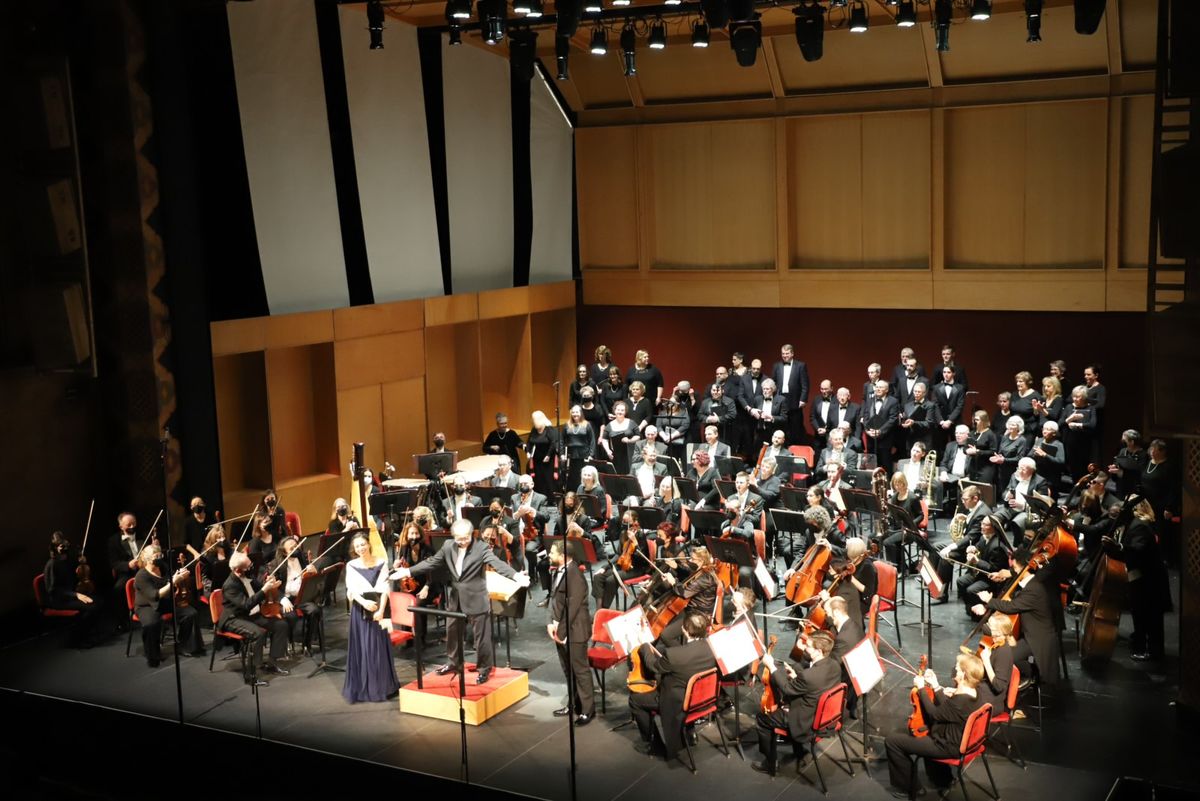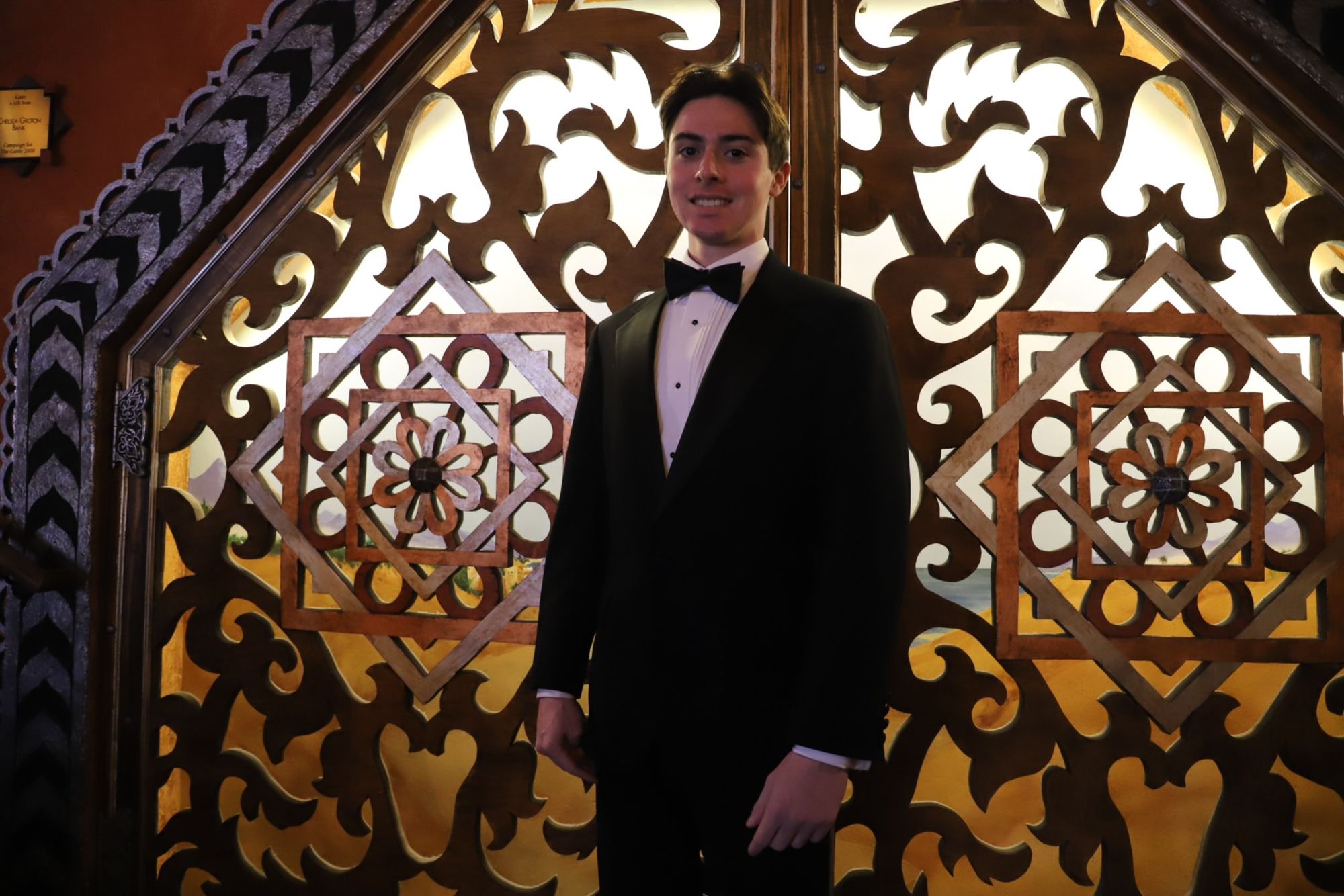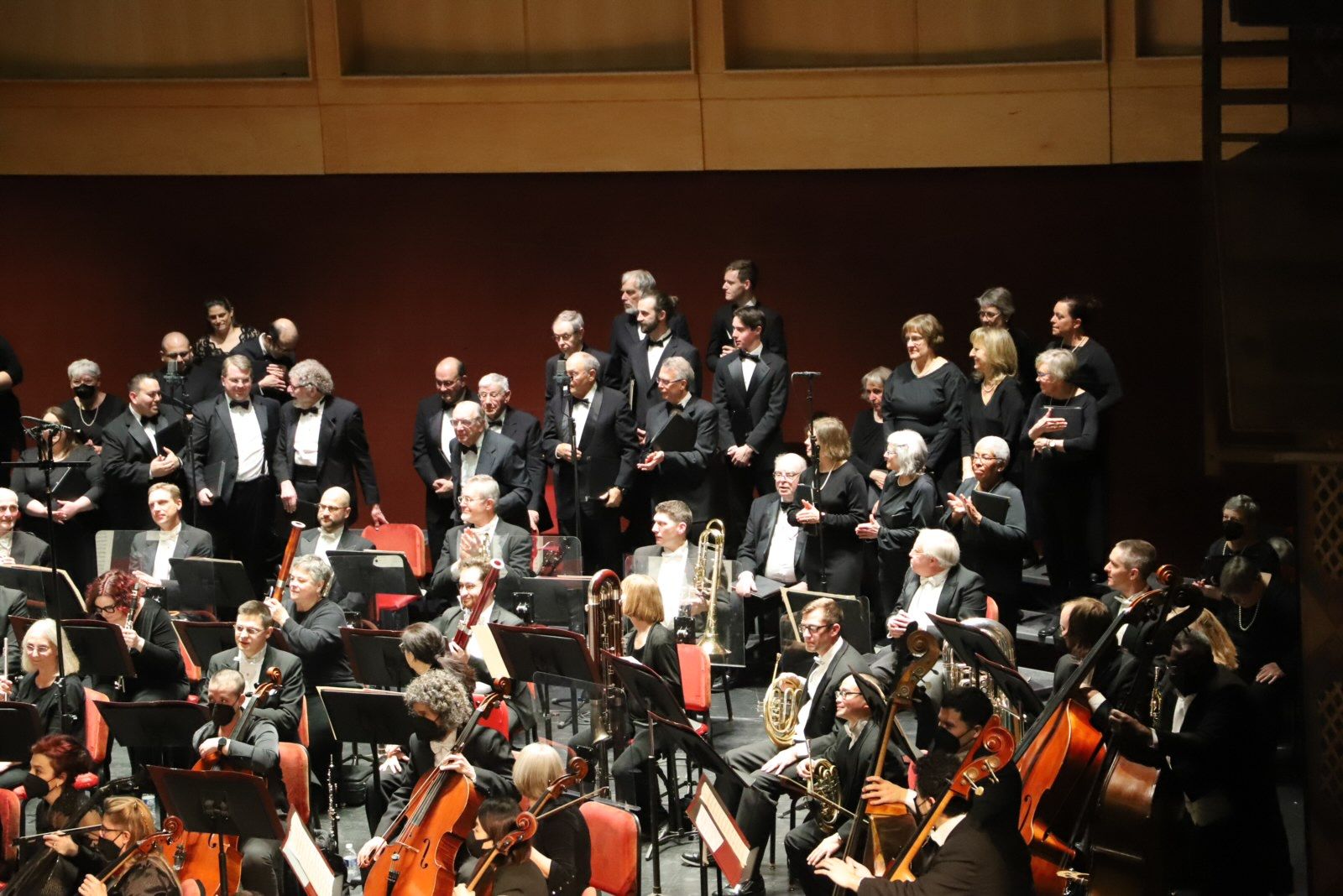Brahms Concert a Local Hit
MSMHS student takes part in a multi-group requiem performance.


“There is no better place to be spending this Saturday night, in New London, than performing the Brahms Requiem on stage,” choral director, Dr. Daniel McDavitt, stated to our group of singers. I joined in the beautiful resonance of every blending voice ascending in a scale for the warmup. There is something special about a choir’s sound on concert day, a smoothness in the voices, like a long ski slope that has just been groomed of all its impurities.
Walking to my seat for the first half, I absorbed the sheer scale of the performance. The human power behind the event is astounding; soloists, the conductor, and the orchestra spending hundreds of hours studying the music written nearly two centuries ago by one brilliant man. Three full nights of rehearsals had taken place at the Garde Arts Theater in New London, CT for this event.
The first half began with work by Britten, an English composer active in the twentieth century. In preparation for the later performance, I visualized the words in my head, getting in the mindset of thirty-three year old Brahms as he wrote the requiem. Having recently lost his mother and his good friend and inspiration, Robert Schumann, Brahms used his composing as an outlet for his grief. As he wrote, “blessed are they that mourn, for they shall be comforted. They who sow in tears, shall reap in joy.” Replicating this emotion onstage is no easy task—I remember our conductor telling us to write a special person’s name every few pages to help the audience feel the choir’s emotion. With forty names written, the grief or joy will encompass the whole theater.

The first act passed by quickly, sped up by my Brahms thoughts. Excitedly, I became the act instead of watching it. Taking to the risers with my fellow basses, the choir took out their music scores as the concertmaster entered the stage. The soft weeping of the violins played, filling the theater with the somber grace of Brahms. The strings complimented each other in a beautiful resonance. I watched the conductor’s batons quivering in the air and awaited my cue. As the strings contrasted and mourned, they paved the way for a quiet entrance from the chorus. I could feel the alertness of every musician’s eyes around me.
The tempo was playing in my head and the great, yet soft entrance arrived. “Selig sind. Die da Leid tragen” which translates to “Blessed are they that mourn.” Brahms was focused on conveying his feelings of grief, and this effort still resonates generations later. As we reached the climax of the second movement, everyone sang the same dark melody in unison with the orchestra. The baritone soloist, Eliam Ramos, was a true professional, with a voice that was full and powerful through each note. The famous fourth movement, a slow waltz, has a delicate vocal melody guided by the emotion of the violins.
We entered the fifth movement, written by Brahms to create a more balanced structure. The soprano soloist, Sarah Joyce Cooper, was very talented, singing every phrase with emotion and perfection. Usually, you can hear soprano singers take quick gasps for air, but I did not hear her breathe once. Now it was the baritone’s part in the grand sixth movement. His range and power is brilliant. One of my favorite parts of the whole requiem is when the baritone sings in forte (loudly) and sets off a chain for the chorus to join in and follow him. The basses are last to join in right after the tenors.
Off we were into the famous German fugues. In simple terms, a fugue in music is a composition where one or two themes are repeated by voices entering at different times, developing into a continuous cycle of interweaving voices. These are difficult to follow along and sing, but the sound is very rewarding. Bach was being rediscovered at this time (1860s) and he was famous for mastering fugues. We let out the final note of the sixth movement and I was relieved to finish the hardest part of the requiem.

The seventh movement is a peaceful resolution in which the orchestra and voices seem to comfort one another. It seemed like no one’s voices were tired after singing for fifty minutes straight. The choir eased through the seventh movement and I kept looking up and thinking that this was it. This is the end of Brahms. I held on to the last note of the piece with all of my voice, giving it everything, until the conductor dropped his batons by his side.
No applause came. The conductor remained facing away from the audience, pausing to feel the moment and let it sink in. The air was dead silent. At least ten seconds passed before the conductor signaled the audience. Huge rumbles of applause filled the theater, continuing to cheer for at least five minutes. It felt great to know all of our practice and rehearsals led to a great end result of the audience’s approval and appreciation. Though I felt a small loss of the Brahms Requiem after it had finished, every moment of being on stage was magical. I feel so lucky to be able to sing these amazing pieces and participate in magnificent concerts like the Brahms.




